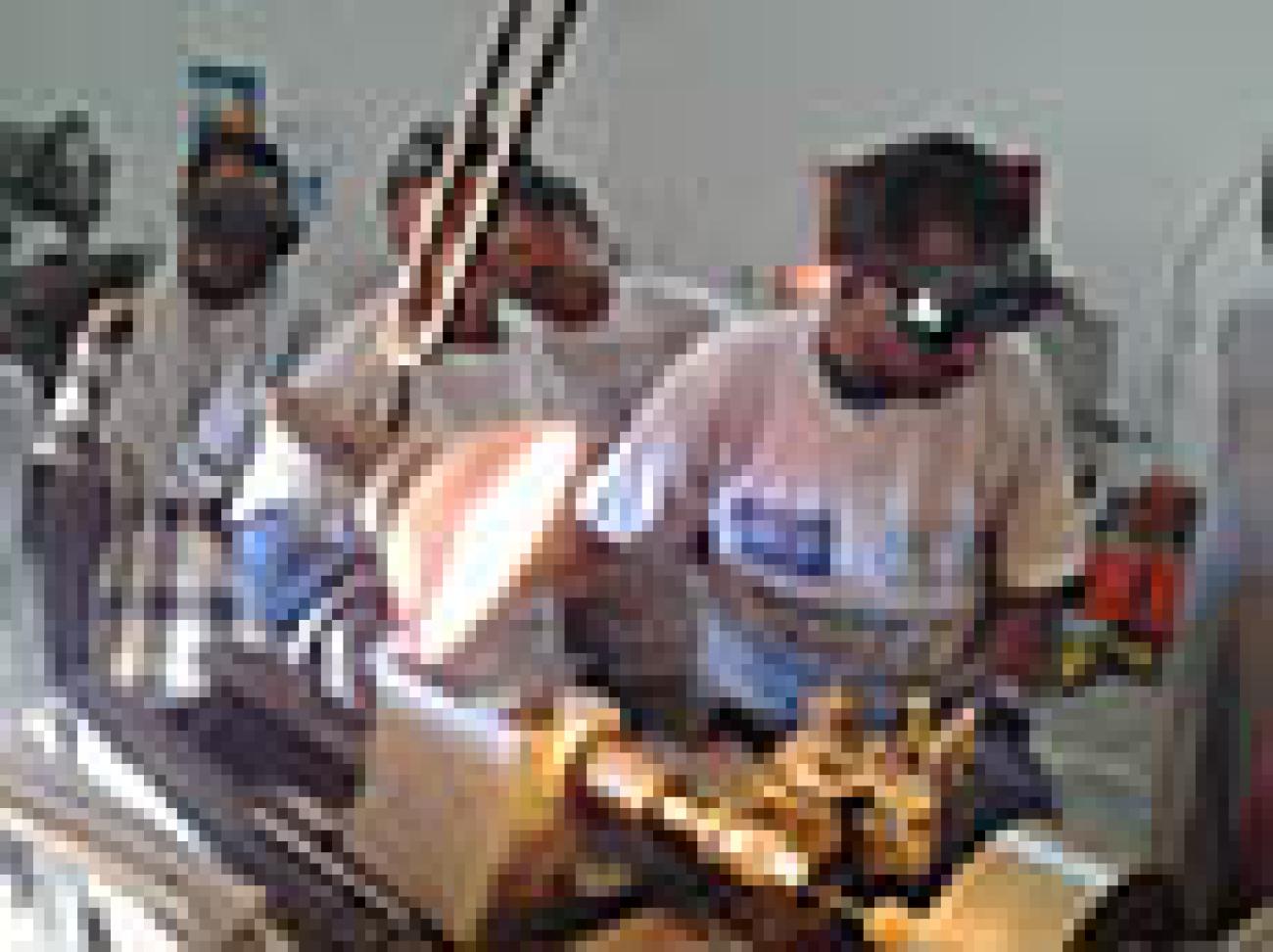Enhancing Employability through Skills Development in Galkayo

Light Engineering plays an important role in industrialisation where innovation has resulted in the creation of new products
Metal work and wood work play an important role in this sector and the employment potential of the sector; it is seen as a corner stone that is underutilized due to production of low quality products the result of a paucity of skills, lack of exposure to new materials and new way, and appropriate, ways of working and the lack of basic input to grant people opportunity to learn. With investment in people, products and the necessary infrastructure to support them, the capability to drive the sector to heights of economic and social success are at hand if these points are addressed alongside issues of market chain development and the basic issues of safer work. It was noted that a majority of workers had injuries caused by lack of the necessary health and safety skills when handling tools and equipments; a prerequisite ahead of also uplifting business and entrepreneurial skills.
Through the support of European Union, the International Labour Organisation, facilitated the Galkayo Vocational Training Centre (GVTC) to train and provided appropriate tools for 48 artisans in light engineering skills alongside offering further business skills to complement these technical inputs. With the trainees having been selected after rigorous exercise with the Galkayo business forum and the Galkayo municipality, the sponsored artisans have been able to fully comprehend, undertake and master all the techniques in terms of use of equipment and the necessary design points for the fabrication of certain products. Upon introduction to the Centre’s machines following basic technical and safety training, the trainees have been able to work as individuals and groups to showcase the skills gained with the fabrication and manufacture of basic items at higher levels of quality not seen before from local production.
As previously noted, a prerequisite was all the artisans being trained in health and safety procedures and also taking part in discussions as to how to set up health and safety regulations for their own longer term wellbeing. This was informed by an initial assessment carried out by GVTC trainers on individual trainees which established the majority of them had injuries sustained previously in the work place due to lack of awareness/adherence to health and safety procedures. Importantly, the trainees were provided with protective gear and were taught how to use them as a way forward in helping the artisans protect themselves from accidents and safeguard their wellbeing.
The trainees made new, well finished products for office and home use. Many of us accept such items as mundane and the stuff of every shop shelf and builders merchants but in places starved of fresh thinking this list of products flags a new step in local, light engineering production. Water tanks, metal gates, window frames, school chairs, tables, cupboards, door locks, beds, clothes hungers, garbage collection bins, road signs and safes to store what valuables people have managed to keep. In addition, farm products such as mattocks, hoes, sickles rakes and replacement parts for tractor pulled implements such as ploughs and tines for cultivation. These products were made available for sale at the GVTC and the money made from the sales went to the trainees in order to financially support themselves and their families.
Apart from the standard upgrading of the artisans’ skills to enhance their production, the trainees were also trained on how to recycle waste materials to produce other products. This helped to create and build awareness on means of reducing wastage and bringing down costs of production while maximizing outputs. For example, the light manufacturing group have made weighting stones (used on weighting scales) from small pieces of scrap metals and the inside parts of car batteries.
The centre has reported a massive uplift in self-confidence amongst those who took part in the courses as their abilities and competence to compete and assert their stake in the local market demand shone through. For example the metal work trainees have designed a new garbage collection bin which they would like to propose to the Galkayo municipality to buy and install on various points in town to help address the problem of rubbish throughout the town; a practical piece of work to aid in building civic pride in their home town.
Such collaboration reflects wider work on how to form an association and forum that would champion their interests and working together with other marginalized people in the community. They also received initial input in thinking wider about the overall socio-economic development of Galkayo town.
“I received a certificate showing I had achieved much after completing the woodwork training. The training was very educational and I gained skills on how to make a variety of products such as beds, tables and chairs. I am very thankful to the EU, ILO and GVTC for giving me this grand opportunity to gain new skills as well as be able to earn a living for my family,” Mahad Hirsi.
Link to original story



